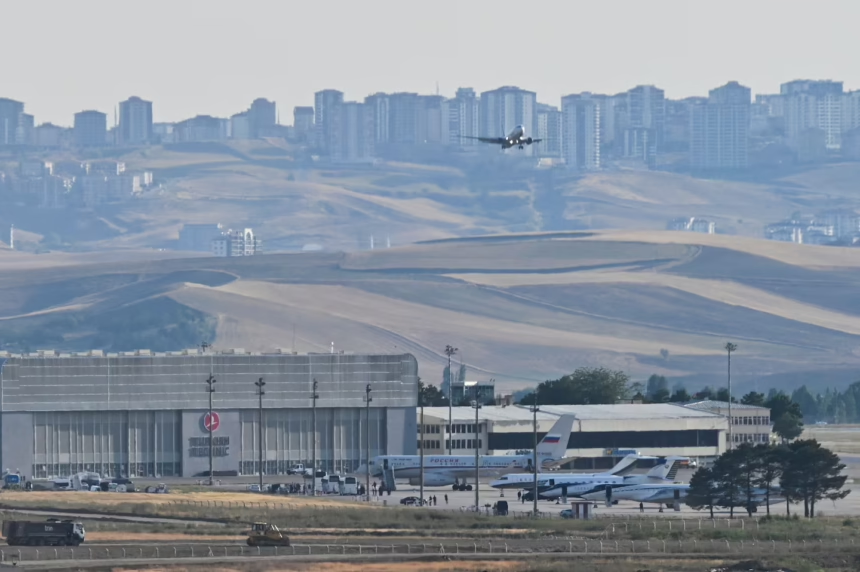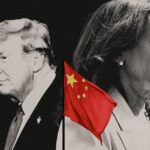Summary by Geopolist | Istanbul Center for Geopolitics:
The article from Foreign Policy describes a historic US-Russia prisoner swap, organized by US President Joe Biden. This is the largest such swap since the Cold War, involving 24 people from at least seven countries.
Among those released were eight Russians, in exchange for 16 Americans, Germans, and Russians. Prominent figures such as journalist Evan Gershkovich and former Marine Paul Whelan were also freed. The exchange also involved criminals and notable activists, including Oleg Orlov.
Biden highlighted the human aspect of the event by mentioning Miriam, the daughter of a released Russian American journalist whose 13th birthday was the next day. The swap contrasted the US and Russia, with Washington advocating for freedom and Moscow trading criminals for journalists.
This event also plays into the US election dynamics, with Biden emphasizing the importance of allies and international cooperation, in contrast to former President Donald Trump’s more transactional approach to geopolitics. The swap underscores the differing visions of the US’s role in global affairs, which is a significant point in the ongoing presidential campaign.
Read more below.
Historic Prisoner Swap Is a Boon for Biden’s Legacy
Lame-duck periods are meant to be inconsequential, but on Thursday afternoon at the White House, U.S. President Joe Biden got a chance to present one of the most important breakthroughs of his time in office. In what was the largest U.S.-Russia prisoner swap since the Cold War, involving at least seven countries over a period of months, a total of 24 people moved across borders as pawns in a game of global 3D chess.
Lame-duck periods are meant to be inconsequential, but on Thursday afternoon at the White House, U.S. President Joe Biden got a chance to present one of the most important breakthroughs of his time in office. In what was the largest U.S.-Russia prisoner swap since the Cold War, involving at least seven countries over a period of months, a total of 24 people moved across borders as pawns in a game of global 3D chess.
Eight Russians are returning home in exchange for a combination of 16 Americans, Germans, and Russians. Within an hour of confirmation that U.S. prisoners were safely out of Russia, Biden assembled family members of the freed Americans at the White House and addressed a gathering of journalists. As he looked into the cameras, he no doubt knew that he was being closely watched by his counterparts in Beijing and Moscow, by millions of people around the world, and by history.
Even in his moment of triumph, Biden found a way to focus on the human reality of the moment. He singled out Miriam, the daughter of the released Russian American journalist Alsu Kurmasheva. It was one day until her 13th birthday, and Biden put an arm around Miriam, leading a chorus of the world’s most popular song. The joy was obviously precipitated by a major international development, but it was also the day a teenage girl would see her mother again after more than nine months in prison, convicted for the crime of writing about Russia’s army.
There’s a long list of prominent names involved in Thursday’s prisoner swap, including Evan Gershkovich, the Wall Street Journal reporter sentenced to 16 years in prison under false claims of conducting espionage, and Paul Whelan, a former U.S. Marine who was in Russia for a friend’s wedding and accused, again, of espionage. There were German citizens and even Russians, including Oleg Orlov, a human rights defender and co-chair of the Nobel Peace Prize-winning group Memorial, in prison for speaking his mind about his country’s war in Ukraine.
Journalists, tourists, and activists went one way in the prisoner exchange; on the other side was Vadim Krasikov, a former colonel in Russia’s Federal Security Service serving a life sentence in a German prison for a hit on a former Chechen fighter, conducted in broad daylight in Berlin. Others included a Russian citizen involved in international money laundering, a hacker, a credit card fraudster, and an actual spy.
The historic exchange instantly evokes imagery from the Cold War, when such transfers of prisoners were more common. But rather than the historical parallels, it is the contrasts drawn by Thursday’s events that will be remembered. There was Washington, fighting for the freedom of not only its own citizens but also Russians who dared to criticize their own government, and in stark relief there was Moscow, openly trading journalists for criminals and Nobel winners for fraudsters. The Kremlin has gleefully applauded knocks to U.S. soft power, from the misadventure of the Iraq War to the botched U.S. departure from Afghanistan in 2021, but the symbolism of the moment will have not been lost on Russian President Vladimir Putin: This exchange isn’t a great look for him. And even though Biden’s claims of a grand battle between democracies and autocracies are often criticized for being too black and white for the modern multipolar world, the lame-duck president now has a moment to mark his favorite reference in the history books.
It’s an election year in the United States, so contrasts will also be drawn around the alternate visions of Washington’s role in the world—currently being debated by surrogates for the Democratic and Republican campaigns. Former U.S. President Donald Trump has long argued for a more transactional approach to geopolitics. In such a world, there are two players—one is a winner, the other a loser. The Trump worldview prioritizes singular might over alliances; values don’t matter as much as the value of the hand of cards a player is clutching to their chest. Biden, while careful to focus on the humanity and history of the moment, couldn’t resist pointing out the difference: “For anyone who questions whether allies matter, they do.” He was referring in particular to the role of Germany, which had reportedly been reluctant to give up Krasikov. Biden personally spoke with German Chancellor Olaf Scholz in January and February, arguing the importance of the prisoner exchange.
Speaking a short while later to reporters, U.S. National Security Advisor Jake Sullivan built on his boss’s message as he detailed the roles played by Germany, Turkey, and others in the prisoner swap. “There is no more powerful example of the importance and power of allies,” he said. “This was vintage Joe Biden.”
Supporters of presumptive Democratic presidential nominee Kamala Harris are also pointing out her role, visiting the Munich Security Conference a few times as vice president and building relations with German and European leaders.
Sen. J.D. Vance, the Republican vice presidential nominee, was quick to offer an alternative view: “We have to ask ourselves, why are they coming home? And I think it’s because bad guys all over the world recognize Donald Trump’s about to be back in office, so they’re cleaning house. That’s a good thing.”
And so the race for the White House rolls on, with both sides seeking to score points and spin their version of events. Thursday will be a historic study in contrasts—between Washington and Moscow and between rules and impunity. It will also be a moment that could play a part in an American referendum on Washington’s role in the world and whether the electorate favors the slow, painstaking diplomacy of Biden or the instant gratification and drama of Trump’s dealmaking.
By Ravi Agrawal
Source: Foreign Policy







